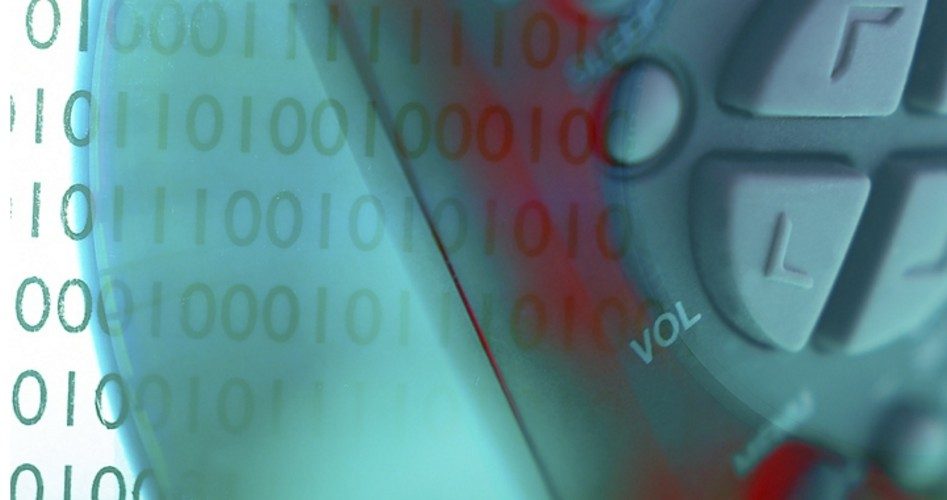
Edward Snowden is still working on surveillance systems — only now he is working to foil them. The former NSA computer analyst, now living in asylum in Moscow, said he is designing an encryption system to protect the confidential information of journalists, doctors, lawyers, and others with professional obligations of confidentiality to their clients.
“An unfortunate side effect of the development of all these new surveillance technologies is that the work of journalism has become immeasurably harder than it ever has been in the past,” Snowden said in a lengthy interview with the British paper The Guardian. “Journalists have to be particularly conscious about any sort of network signalling, any sort of connection, any sort of licence-plate reading device that they pass on their way to a meeting point, any place they use their credit card, any place they take their phone, any email contact they have with the source because that very first contact, before encrypted communications are established, is enough to give it all away.”
Electronic communications of doctors, lawyers, accountants, and even clergy also require protection in this age of digital surveillance, Snowden said. “If we confess something to our priest inside a church that would be private, but is it any different if we send our pastor a private email confessing a crisis that we have in our life?”
Snowden’s life has been shrouded in secrecy since he fled the United States in June of last year, after delivering to The Guardian thousands of classified documents revealing the extent of NSA surveillance in the United States, including the daily collection of billions of telephone records, e-mails, and other electronic communications.
He went first to Hong Kong, then to Moscow, where he was given temporary asylum last July 31. U.S. officials have unsuccessfully sought his extradition to the United States, where he is wanted on charges of espionage and theft of government documents. His passport has been revoked and Russian journalist Andrei Soldatov, who has written extensively about the F.S.B., successor to the Soviet KGB, said in an interview with the New York Times last fall that Russian intelligence had Snowden under close surveillance. “He’s actually surrounded by these people,” Soldatov said.
Snowden’s lawyer, Anatoly Kucherena, said at the time that Snowden had agreed to take a job with one of Russia’s major Internet companies. He did not name the company or discuss other details of his client’s life in exile “because the level of threat from the U.S. government structures is still very high,” he told the Times in a telephone interview. Snowden told The Guardian he is seeking foundation money for his encryption project.
Snowden’s exposure last year of the NSA spying came on the heels of news that the Justice Department had seized telephone records from four Associated Press offices in an effort to identify the source of a story about a successful counterterrorist operation in Yemen, and Fox News reporter James Rosen had been named as a criminal co-conspirator with Stephen Jin-Woo Kim, a former State Department contractor who was the alleged source of Rosen’s online story that North Korea planned to respond to UN sanctions with another nuclear test. Kim pled guilty to a felony count of disclosing classified information.
The co-conspirator charge was made in a Justice Department warrant for a search of Rosen’s e-mail. The department’s investigators also used security badge access records to trace Rosen’s visits to the State Department and obtained telephone records to trace the timing of his calls, according to a court affidavit.
“This is the first time that the federal government has moved to this level of taking ordinary, reasonable, traditional, lawful reporter skills and claiming they constitute criminal behavior,” Judge Andrew Napolitano, a Fox News contributor, said at the time. According to the New York Times, the Bush administration in 2005 tried to block distribution of the book State of War by Times reporter James Risen because it contained a chapter about a botched CIA effort to sabotage Iran’s nuclear program. Last month the Supreme Court declined to hear Risen’s appeal from a subpoena requiring him to reveal his source, leaving open the possibility of a jail sentence for the reporter if he continues to maintain his silence. Critics of the administration’s efforts at identifying the sources of leaks point to the dangers to a free press in the surveillance and prosecution of reporters.
“If the government proceeds and pursues the subpoena, especially if Mr. Risen goes to jail or is fined at some intolerable level, it will deal a withering blow to reporting that runs against the government’s wishes,” Steven Aftergood, who studies government secrecy for the Federation of American Scientists, told the Times.
In his interview with The Guardian, Snowden described activities by NSA personnel quite removed from any interest in national security:
During the course of their work, (NSA employees) stumble across something that is completely unrelated to their work in any sort of necessary sense, for example, an intimate nude photo of someone in a sexually compromising situation. So what do they do? They turn around in their chair and show a coworker who says, “Hey that’s great. Send that to Bill down the way.” Then Bill sends it to George, who sends it to Tom, and sooner or later this person’s whole life has been seen by all of these other people….
The fact that your private images, records of your private lives, records of your intimate moments have been taken from your private communication stream, from the intended recipient and given to the government without any specific authorization or need is a violation of your rights.



